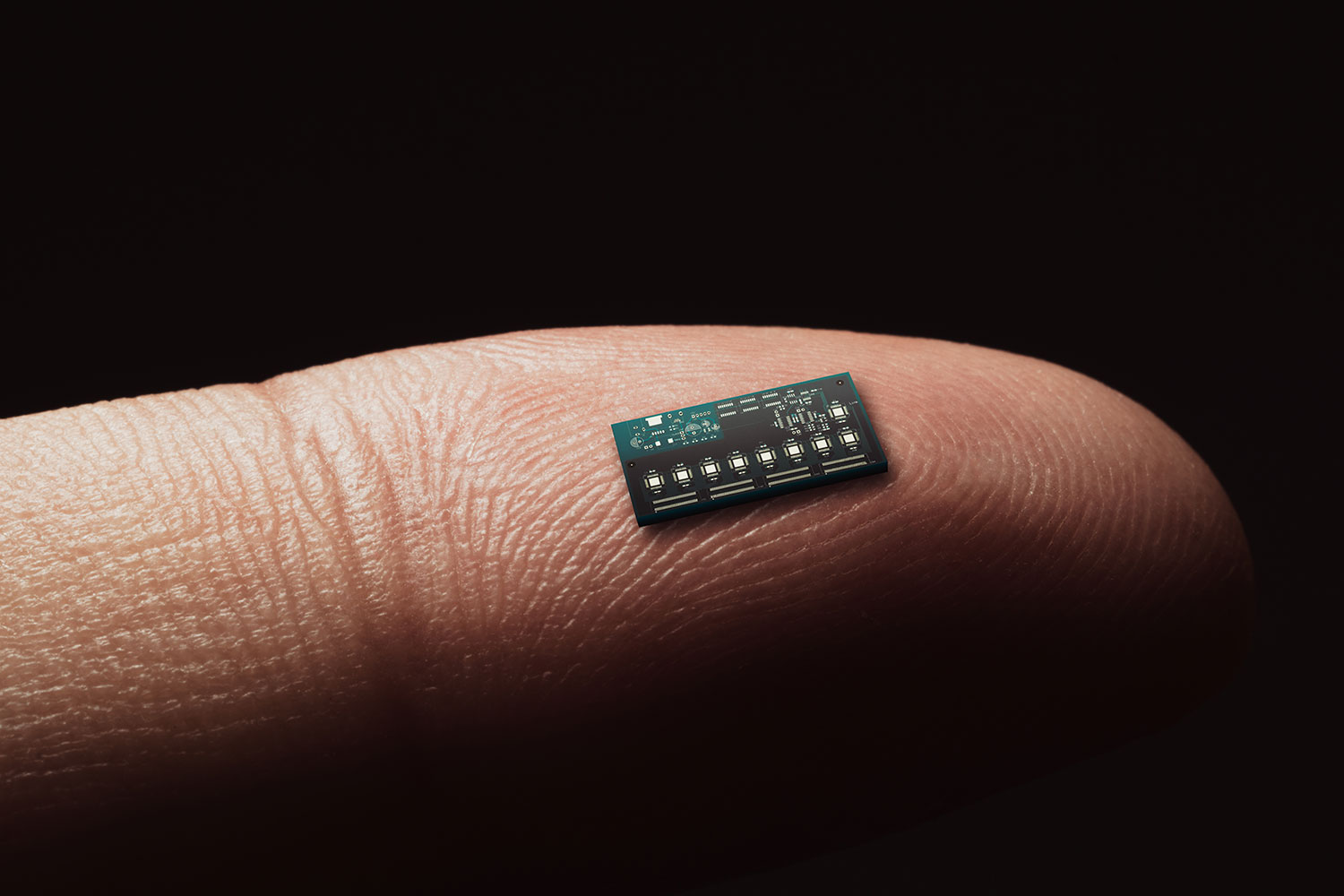PRISMA: Piloting Responsible Research and innovation in Industry: a roadmap for tranSforMAtive technologies
Professor Ibo van de Poel is in charge of PRISMA, a project in the EU’s Science with and for Society programme (SwafS). In the second year of the three-year project, he knows a lot more about the drivers and barriers for RRI: “Small businesses usually lack the expertise to take it on, but the personal commitment of a CEO or manager can be a strong driver.”
That companies should act socially accountable – known as Corporate Social Responsibility (CSR) – is now considered the norm. But what if you extend that notion to the innovation process of new technology? That is what is known as Responsible Research and Innovation (RRI). “Responsible innovation means, simply put, that you take societal values and needs as a starting point for designing new technology,” says Professor Ibo van de Poel, Antoni van Leeuwenhoek Professor of Ethics and Technology and head of the Department Values, Technology & Innovation. “A lot of scientific investigation has gone into the subject, and it is a focal point of research at our department, as well as within the EU.”
Eight pilot projects in real-world industry
With limited experience of how RRI actually works in Industry, the EU issued a call for a Coordination and Support Action. “That is not a research project as such, but more a means to bring about something in practice. That is why in PRISMA we carry out eight pilot projects in a real-world industry context”, Van de Poel explains. “Along the way, we’ll be gaining new insights. We have some wonderful theories on the responsible innovation, but what will happen if you start to apply them? For example, what are the drivers or barriers for businesses to take this on board? These pilot projects are testing grounds for our theories, and will no doubt lead to the formation of new theories as well.” The businesses taking part in the pilots cover a range of new technologies – nanotechnology, synthetic biology, autonomous vehicles and Internet of Things (IoT) – and are located in various European countries.
Advice on to implement responsible innovation
“We advise them on how they can implement responsible innovation into their business processes. That can be any of a number of things, from talking to stakeholders to charting the potential risks of a new technology, It really differs from business to business”, Van de Poel explains. “To give an example, Evolva is a Swiss-based company developing food ingredients with the help of synthetic biology. They are working on the production of a vanilla substitute through fermentation. This is controversial, as allegedly it would cost farmers in the developing world their livelihood. That is debatable, as most vanilla-flavoured products are made with a synthetic substitute anyway. So even though they want to replace the chemically produced substitute with a biological one, their biggest challenge is societal acceptance of synthetic biology.”
New technology can change roles and responsibilities
Van de Poel counselled Spectro, manufacturer of professional cleaning products and concepts. “They are very much involved in sustainability and have some quite innovative solutions. For example, containers that dispense just the right amount of cleaning fluid. That saves the user money, but is also more sustainable”, he says. “At the same time, such dispensers register a lot of data about when and how often the product is used, which can be an indicator for the level of cleanliness.” This is where it gets interesting. “What if somebody falls ill after dining in a restaurant and your dispenser shows that it can’t have been too clean in the kitchen. What do you do? Such technology can really change your roles and responsibilities as a supplier.”
Consequences vs benefits
“Think about a future where a sensor in your mop can sense where and how well a floor is cleaned”, Van de Poel continues. “That can be potentially lifesaving in a hospital. However, as part of the cleaning staff, you may not appreciate that level of control, since you possibly feel you don’t get enough time to do the cleaning right anyway. So a potentially beneficial solution can have all sort of consequence when you think about it.” Spectro did think about it in the context of the project and concluded that they should make their customers more aware of the possibilities of their products. “They have changed their policy and are now more actively sharing data with their customers, who can then use that data to their advantage.”
RRI has two main drivers
PRISMA has already led to some new insights. “You can observe two main drivers for RRI. The first is that a business is trying to get a competitive advantage or move into a new market. That is a commercial motive, but they will be pursuing that through respecting societal values like privacy, sustainability or security.” The second reason is an altruistic one: “There are organisations who believe they have an inherent social responsibility and act from a desire to do the right thing.” Either way, RRI may make business sense. “Even if right now there are no restrictions or objections to the technology you are developing, this may well change in the future. If you can show you have been doing everything responsibly, the public may more easily accept it. It would be interesting to see in follow-up research if that really gives businesses a competitive edge.”
Roadmap and toolkit for businesses
With the outcomes of the pilot projects, a methodology is being developed that businesses can use for their own roadmap towards RRI. “It can help them answer questions about what challenges they will be facing if they decide to take up responsible innovation, and how they can deal with them”, says Van de Poel. “Part of the methodology is a toolkit, with tools to help them set up a stakeholder dialogue, or draw up a stakeholder values scenario, and so on.” Businesses can create their own roadmap, or call in the help of experts like Van de Poel. Another deliverable of the PRISMA project will be a Massive Open Online Course, or MOOC. “That will include videos detailing all the pilot projects, as well as more general instruction in RRI.”
'Pre-investing in a good proposal takes up
a lot of your time as a coordinator, but also gives
you the best chance of success.'
Strategic decision to coordinate
Taking on the role of coordinator was a strategic choice. “Responsible innovation is one of the research themes at the department, but we hadn’t taken part in any European projects on the subject yet. So it was a matter of credibility to be in the lead of one. That way, we could show that we are capable of bringing together the right partners.” Van de Poel put together a small consortium of five partners, including Karlsruhe Institute of Technology and Warwick University. “RIVM - the Netherlands National Institute for Public Health and the Environment – is also a partner, as is Airi/Nanotec IT, an Italian organisation for industrial nanotechnology research that has a lot of experience with RRI.”
Billing hours to the project
Being in the driver’s seat certainly has its advantages, Van de Poel believes. “You have more say over the direction of the project and the partners you want to work with. You also get a larger chunk of the budget, but that means that you have to put in the hours, of course.” Even that can be a plus side: “With H2020, you can bill your own hours to the project and at pretty reasonable hourly rate too. With grants from the national research council NWO, for example, you can hire people, but not bill your own hours.” In addition to Van de Poel and a few of his colleagues billing hours to the project, he has also hired a postdoc, who assists with the coordination. “At the end of the day, I am responsible for the research, and I have to take certain decisions, but he is doing quite a lot of the practical stuff. He is good at it too, and likes doing it. That was a bit of good luck, because when you hire someone, you can’t be sure that is the case.” He also recommends getting help from the Valorisation Centre: “We opted to let the VC handle the financial and organisational coordination, everything except for the research itself. That kept it manageable.”
Invest time in a good proposal
With just five partners, PRISMA is not a very complex project. “They turned out to be very dependable too. You do not really want to get involved in a major conflict between partners. I guess that could be a reason others shy away from becoming a coordinator. Of course, we have the occasional difference of opinion, and sometimes you have to keep someone on their toes,” Van de Poel says. “Actually, the bulk of my work went into writing the proposal. Pre-investing in a good proposal takes up a lot of your time as a coordinator, but also gives you the best chance of success.”
It is certainly doable
It is an investment that pays itself back with interest. “You gain visibility when you coordinate a project. I now often am asked to collaborate on other projects, within and without TU Delft. Others want you on board, because they see us as a successful institution. You still have to be critical about what you accept, but there is bound to be interesting projects among what’s on offer.” Overall, Van de Poel would recommend taking on a coordinator’s role. “I certainly don’t regret is, but you should think carefully before you embark on it. It is a serious task, not something you can just do alongside a lot of other things,” he stresses. “But if the project is not too large, and you get help from the Valorisation Centre, it is certainly doable.”
'Responsible innovation is one of the research themes
at the department, but we hadn’t taken part in
any European projects on the subject yet. So it was
a matter of credibility to be in the lead of one.'
'You gain visibility when you coordinate a project. I now often am asked to collaborate on other projects, within and without TU Delft. Others want you on board, because they see us as a successful institution.'
Ibo van de Poel


The businesses taking part in the pilots cover a range of new technologies, including nanotechnology, synthetic biology, autonomous vehicles and the Internet of Things (IoT).

